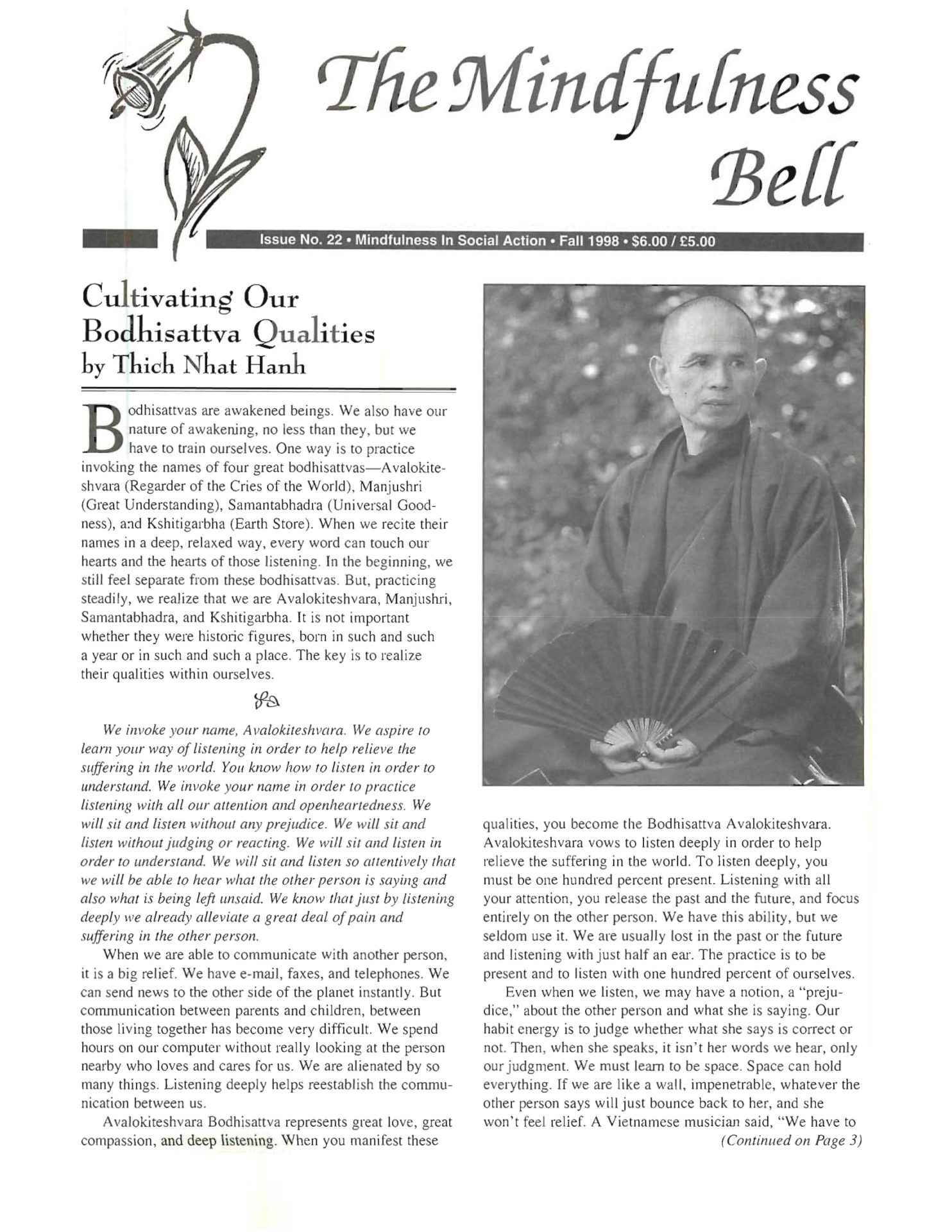By Dewain Belgard
In closing his first letter to the Thessalonians, St. Paul wrote: “En panti eucharisteite. (In everything, give thanks.)” He was advising them no matter how negative a situation, to be mindful of the elements of joy and blessing also present.
In the practice of gratitude I have discovered the paradox that my capacity to be aware of suffering increases in direct proportion to my capacity to experience joy and to be mindful of blessings in every situation.
By Dewain Belgard
In closing his first letter to the Thessalonians, St. Paul wrote: "En panti eucharisteite. (In everything, give thanks.)" He was advising them no matter how negative a situation, to be mindful of the elements of joy and blessing also present.
In the practice of gratitude I have discovered the paradox that my capacity to be aware of suffering increases in direct proportion to my capacity to experience joy and to be mindful of blessings in every situation. Compassion and joy are inseparable. If we harden our hearts and close our eyes to suffering, we also cut off our capacity to experience joy and happiness. And, if we are not continually mindful of the joyful and beautiful elements of life, we cut off our capacity for compassion.
Some years ago, Jim, my dear friend and life companion for many years, lay sick in the New Orleans Veterans Hospital. One day he told me he could no longer get to the toilet. He asked if I would help him with the bedpan. I was overjoyed at the opportunity to help. He asked if I would spend the night with him, because he was embarrassed to ask the nurse or orderly to help him with personal hygiene. I called the physician and asked her permission. With some reluctance, she agreed. It was about one-thirty in the afternoon. I told Jim I would go home to take care of our dogs and cats and return about seven o'clock. He asked me to fix his watch on a nearby shelf so he could tell the time. I arranged his watch. Then I kissed him good-bye and left.
When I returned about six-thirty, Jim appeared to be asleep. He was lying on his side where he could see his watch, but his eyes were closed His facial expression was peaceful. Then I noticed how still he was, and as I drew closer I realized that he was dead. I think he tried to hold on to life until seven o'clock when he knew I would return. But he wasn't able to hold on long enough.
For several days I could hardly stop crying. I cried myself to sleep at night. I even cried in my dreams. I woke up in the morning crying. But with the help of friends, I began to see how fortunate we were that Jim had been spared a long, agonizing death.
I feel truly blessed to have known Jim and to have shared so many years with him. His life continues in many wonderful ways. For instance, he designed and built the room where our Sangha meets. In the years since Jim's death, I have come to see, especially with the help of Thay Nhat Hanh's teachings, that for me the practice of gratitude in all circumstances is a fundamental and indispensable practice.
Nearly everyone can recount similar experiences of pain, grief, and loss. Life is difficult for us all at times. In Pali, the word dukkha-often translated as "suffering"-in its root sense means "difficult." Life is dukkha. That is the First Noble Truth. Though it may seem paradoxical, that truth is why I find it so necessary to practice St. Paul's advice to the Thessalonians: "En panti, eucharisteite!" In all circumstances, be grateful!
Dewain Belgard, True Good Source, is a social worker and practices with the Blue Iris Sangha in New Orleans, Louisiana.

